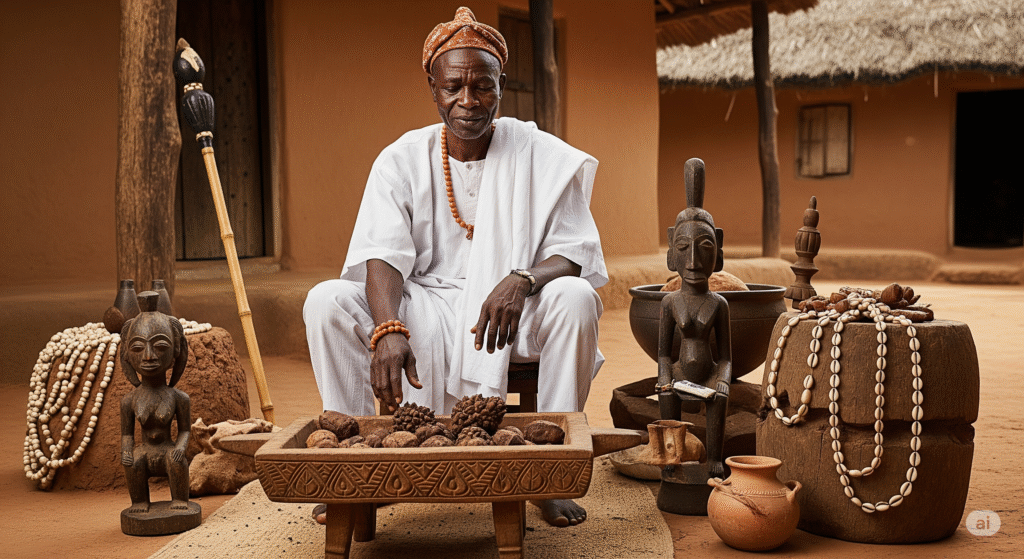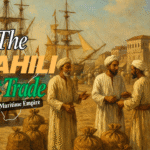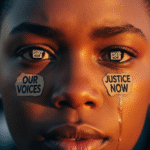Reclaiming Africa’s Spiritual Heritage
For centuries, African Traditional Religions (ATR) have been marginalized, misrepresented, or outright demonized by colonial narratives and mainstream religious institutions. Yet, these indigenous belief systems are not only foundational to African identity—they are vibrant, evolving expressions of spirituality, community, and nature-based wisdom.
Today, scholars, cultural advocates, and young Africans are reclaiming ATR as a vital part of their heritage and worldview.
What Are African Traditional Religions?
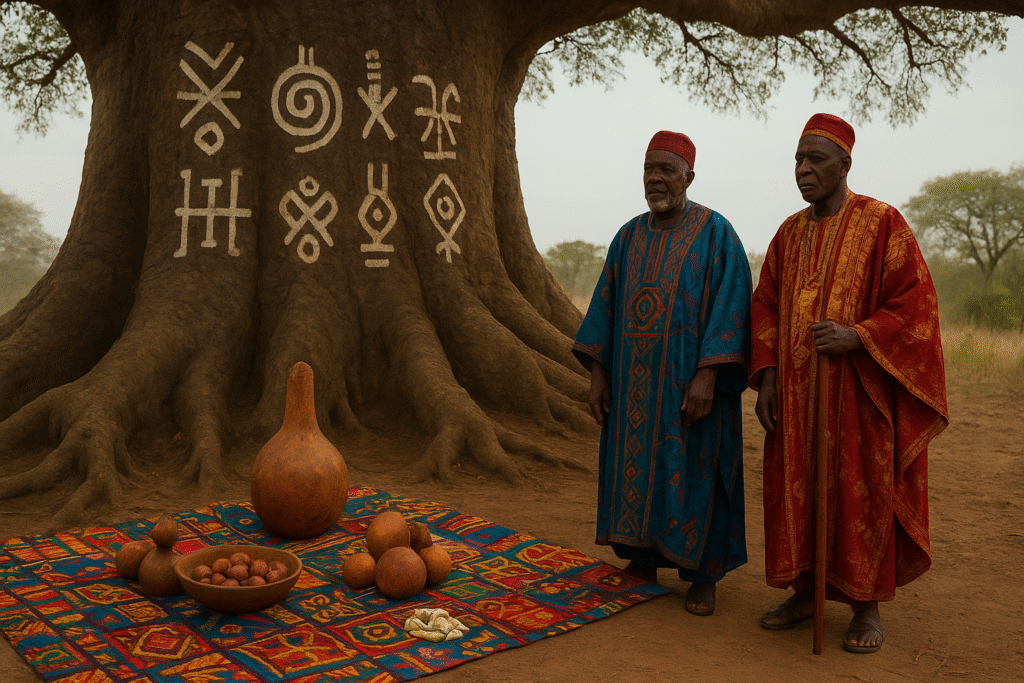
African Traditional Religions are indigenous belief systems practiced by various ethnic groups across Africa, long before the advent of Christianity or Islam.
🌿 Key Characteristics:
- Oral Tradition: Passed down through storytelling, rituals, and songs.
- Community-based: No holy books; beliefs are lived and practiced.
- Spiritual Connection to Nature: Rivers, trees, mountains, and animals are sacred.
- Ancestral Reverence: Ancestors are guardians who influence daily life.
- Balance and Harmony: Emphasis on cosmic order, morality, and social justice.
African religions are as diverse as the continent itself, yet they share a unified spiritual philosophy grounded in life force, ancestral memory, and sacred order.
Major African Traditional Religions and Regions
While ATR varies by region, several well-known systems have had lasting influence:
- Yoruba Religion (Nigeria, Benin, Togo): Worship of Orishas such as Sango, Ogun, and Oshun.
- Vodun (Benin, Togo, Ghana): Spiritual forces known as Loa or Vodun are venerated.
- Akan Religion (Ghana, Ivory Coast): Emphasizes the Supreme Being (Nyame) and ancestral spirits.
- Dinka & Nuer Beliefs (South Sudan): Centered on nature, cattle, and sky gods.
- Zulu & Xhosa Beliefs (Southern Africa): Connection to ancestral spirits (Amadlozi) and rituals of communion.
Read more about The Spiritual Power of the Ouidah Voodoo Festival
Belief Systems and Deities
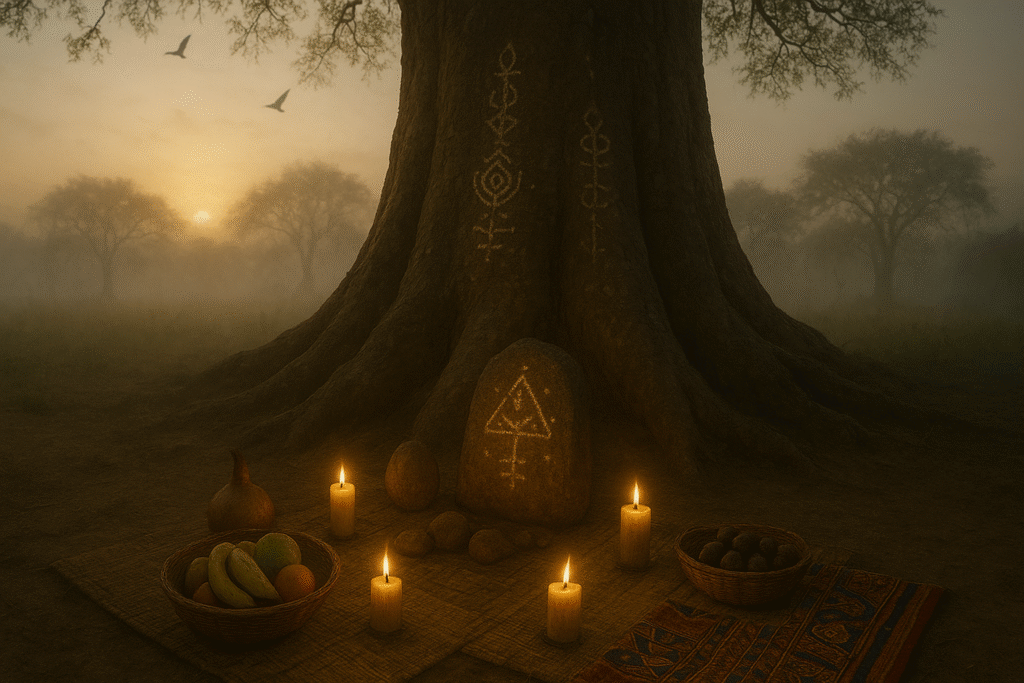
Most African Traditional Religions recognize:
- A Supreme Creator (e.g., Olodumare, Nyame, Chukwu) who is distant but revered.
- Lesser Deities/Spirits: Responsible for rain, harvest, war, fertility, healing.
- Ancestors (Egungun, Abosom): Act as spiritual mediators between the living and the spirit world.
- Ritual Objects and Sacred Symbols: Cowrie shells, talking drums, sacred trees, shrines.
Worship is often done through offerings, libations, music, dance, and spiritual possession.
Priests, Diviners, and Traditional Healers
Spiritual intermediaries play a central role:
- Babalawo (Yoruba): Priests of Ifá divination
- Sangomas (Southern Africa): Healers and mediums
- Dibia (Igbo): Medicine men and spiritual counselors
- Mamas (East Africa): Herbalists and rainmakers
These figures:
- Interpret dreams and omens
- Conduct healing rituals
- Provide moral and spiritual guidance
- Serve as protectors of cultural memory
Explore how Traditional African Medicine is Gaining Global Recognition
Rites of Passage and Life Cycle Ceremonies
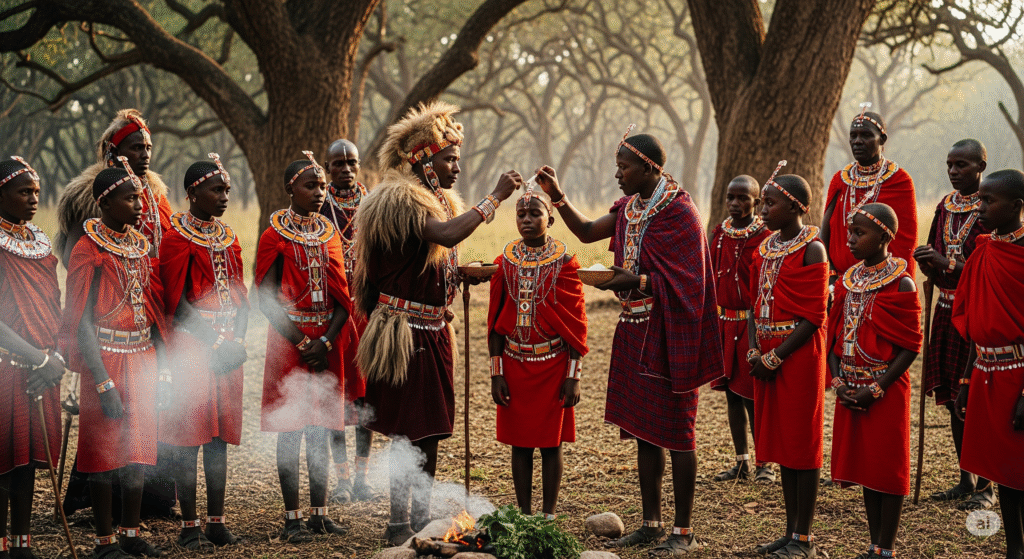
ATR marks life’s transitions through sacred rites:
- Birth: Naming ceremonies invoking ancestors
- Puberty: Initiation rituals into adulthood (e.g., Maasai, Xhosa, Igbo)
- Marriage: Union seen as spiritual contract involving ancestors
- Death: Elaborate funerals ensuring safe passage to the ancestral realm
These ceremonies teach values, identity, and the sacredness of community.
Influence on Diaspora and Global Cultures
Through slavery and migration, African spiritual systems have evolved globally into:
- Vodou (Haiti)
- Candomblé (Brazil)
- Santería (Cuba)
- Obeah and Hoodoo (Caribbean and U.S.)
These Afro-diasporic religions retain Orishas, ancestor reverence, and ritual dance, serving as powerful tools of resistance and cultural survival.
Leaders like Marcus Garvey, Maya Angelou, and Beyoncé have referenced African spirituality in their work, helping normalize and uplift ATR worldwide.
Read how African Festivals Reconnect the Diaspora to Ancestral Roots
Resilience and Modern Rebirth
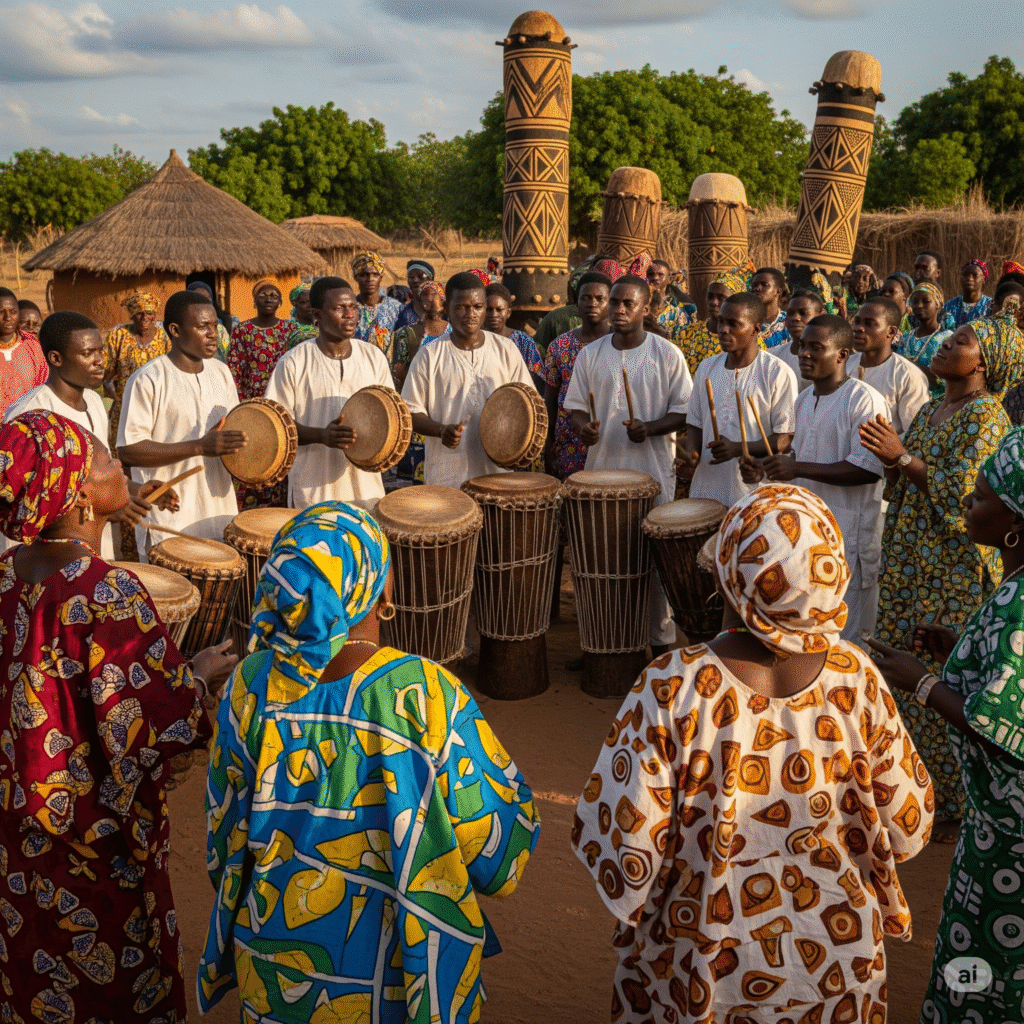
Colonial powers and missionaries tried to erase ATR by labeling it pagan or demonic. Yet, these beliefs endured underground, adapted, and are now resurging.
Today:
- Universities teach ATR in theology and anthropology departments.
- Digital platforms share rituals, deities, and stories.
- Youth and artists are embracing Orishas and African cosmology in fashion, film, and music.
Movements like “Back to the Roots” and “AfroSpirituality” are gaining momentum.
Controversies, Challenges, and Misconceptions
Despite growing respect, ATR faces:
- Demonization in media and mainstream religions
- Cultural appropriation in fashion and entertainment
- Internal tensions between modernization and traditional practice
There is also a need for ethical representation, legal recognition, and cultural education to ensure ATR is preserved with dignity.
Preserving Africa’s Spiritual Identity
African Traditional Religions are more than spiritual practices—they are blueprints for sustainable living, moral consciousness, intergenerational respect, and cultural power.
At Eblackmedia, we believe these traditions deserve recognition, preservation, and global respect. In the face of modernity and globalisation, ATR remains a spiritual compass for Africans and the global Black community.
Let’s continue to celebrate, study, and share these traditions—because knowing where we come from tells us who we truly are.
Further Reading & Internal Links
- Ouidah Voodoo Festival: Benin’s Spiritual Revival
- African Symbols and Their Meanings
- Top 10 African Cultural Concepts the World Should Know
- Books:
- African Religions & Philosophy – John Mbiti
- Flash of the Spirit – Robert Farris Thompson
- Of Water and the Spirit – Malidoma Patrice Somé
